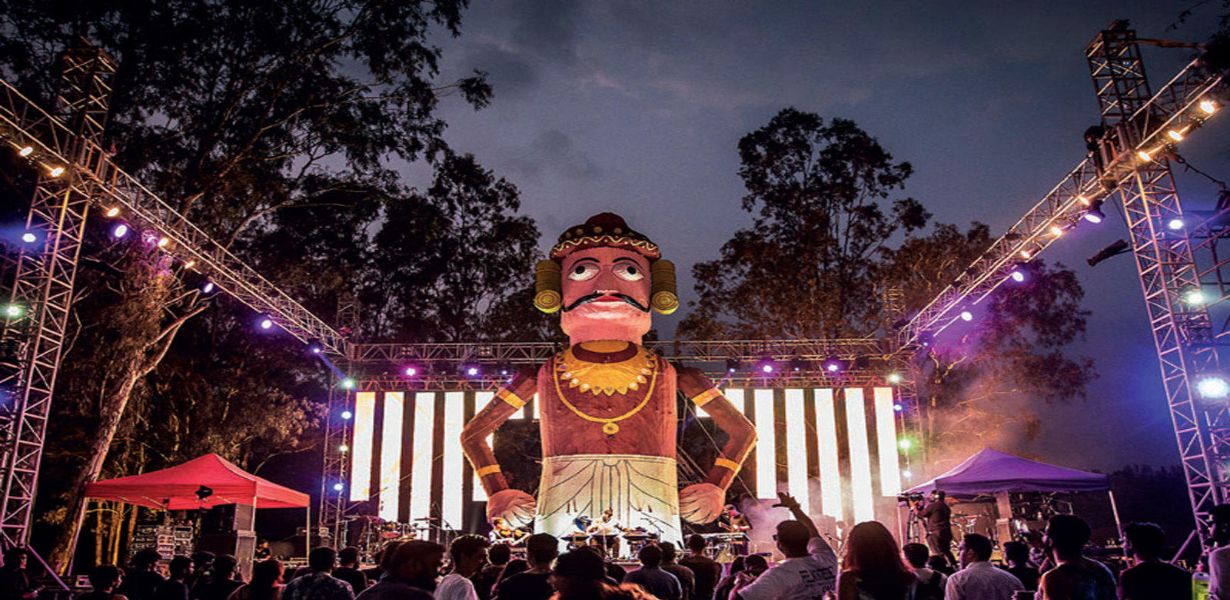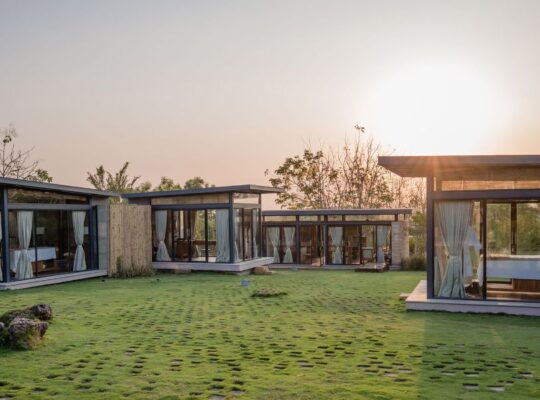Cultural events have long been a canvas for human expression, a vibrant tapestry weaving together traditions, art, and celebrations. In this age of heightened environmental awareness, cultural festivals are not just about revelry; they are evolving into showcases of sustainable practices and eco-friendly technologies, harmonizing celebration with a commitment to our planet's well-being.
The Green Wave of Cultural Festivals
In the kaleidoscope of cultural events, a green wave is sweeping through. Cultural festivals, once associated solely with music, food, and dance, are now transforming into platforms for environmental consciousness. From solar-powered stages to biodegradable utensils, festivals are adopting eco-friendly tech to reduce their carbon footprint.
Harnessing Solar Power for Stage Brilliance
One spotlight on sustainability is the integration of solar power into festival stages. Giant solar panels soak up the sun's energy during the day, powering the evening's electrifying performances. This not only reduces reliance on conventional power sources but also serves as a powerful statement on the potential of renewable energy.
In a recent study by the International Journal of Sustainable Energy, festivals incorporating solar-powered stages witnessed a significant decrease in carbon emissions compared to traditional setups. The use of solar energy aligns festivals with the global shift towards cleaner, greener alternatives.
Eco-Friendly Soundscapes: Silent Disco Revolution
Traditional sound systems at festivals can be energy-intensive and noisy, contributing to noise pollution. The Silent Disco revolutionizes the music experience by providing festival-goers with wireless headphones. Not only does this minimize the environmental impact, but it also allows attendees to curate their musical journey, reducing overall noise levels and fostering a more immersive experience.
According to a report by the Environmental Science & Technology journal, Silent Disco events recorded a 30% reduction in noise complaints and a 50% decrease in energy consumption compared to traditional sound setups.
Sustainable Eats: From Farm to Festival
Beyond stages and sound, festivals are rethinking the food experience. Sustainable food practices, such as sourcing locally and promoting plant-based options, are gaining traction. By bringing the farm to the festival, organizers reduce the carbon footprint associated with long-distance food transportation.
A study published in the Journal of Agriculture, Food Systems, and Community Development reveals that festivals incorporating sustainable food practices experienced increased attendee satisfaction and a positive impact on local economies.
Wearable Sustainability: Fashion Statements for the Planet
Cultural festivals have become fashion runways for sustainable attire. From upcycled garments to clothing made from eco-friendly materials, festival-goers are making conscious fashion choices. Wearable tech, such as biodegradable LED accessories, not only adds flair to outfits but also aligns with the festival's commitment to sustainability.
According to a survey by Fashion and Textiles, festivals embracing sustainable fashion witnessed a surge in attendee engagement and positive social media mentions, emphasizing the growing importance of conscious consumerism.
Navigating Challenges: Balancing Fun and Responsibility
While the integration of eco-friendly tech at cultural festivals is commendable, organizers face challenges in striking the right balance between sustainability and entertainment. Innovations such as waste reduction strategies, efficient transportation options, and engaging eco-awareness campaigns play a crucial role in overcoming these challenges.
A case study by the International Journal of Event and Festival Management highlights successful strategies employed by festivals in maintaining a harmonious balance, proving that sustainability need not compromise the joyous spirit of celebration.
Future Trends: Paving the Way for Greener Festivals
As technology continues to advance, the future of cultural festivals looks even greener. Innovations like kinetic dance floors that generate electricity from movement and bio-degradable 3D-printed decorations are on the horizon. The collective effort to push boundaries in sustainable event planning is creating a positive ripple effect, inspiring other sectors to adopt eco-friendly practices.
Final Words
In the symphony of celebration and sustainability, cultural festivals are becoming pioneers of positive change. Embracing eco-friendly tech not only aligns with the global call for environmental responsibility but also enhances the overall festival experience. As we dance into the future, let's carry the torch of sustainability, turning every festival into a celebration of our planet's resilience.
Frequently Asked Questions
Q1: How do festivals ensure the authenticity of sustainable practices?
A1: Festivals often collaborate with environmental organizations to certify their sustainability initiatives. Look for certifications like ISO 20121 for event sustainability management.
Q2: Can eco-friendly tech really make a difference in reducing a festival's environmental impact?
A2: Absolutely. Studies show that incorporating eco-friendly tech, such as solar-powered stages and sustainable food practices, significantly reduces a festival's carbon footprint.
Q3: What role do festival-goers play in promoting sustainability?
A3: Festival-goers can contribute by choosing sustainable transportation options, reducing waste, and supporting eco-friendly initiatives. Small actions collectively make a big impact.
Q4: Are there any cultural festivals globally recognized for their commitment to sustainability?
A4: Yes, festivals like Glastonbury (UK) and Shambhala (Canada) have gained acclaim for their strong commitment to sustainability, setting benchmarks for others to follow.
Q5: How can individuals stay informed about eco-friendly initiatives at cultural festivals?
A5: Follow festival organizers on social media, visit their official websites, and join eco-conscious communities to stay updated on the latest sustainability initiatives and practices.












